On an 80-degree May day in Leavenworth, Washington, James Munly heaves mounds of wet clay and shapes a 27-foot tabletop jump in the Wenatchee Forest. The Ribbed trail, once illegal, re-opens on June 2 with the Okanogan-Wenatchee National Forest District’s approval. More than 20 years ago, the Forest Service tore it down. Builders like Munly rebuilt it and the Forest Service tore it down again. This battle went back and forth a few times.
“Where we’re at now is pretty amazing,” says Munly. He’s been building trails in the Wenatchee forest for about 22 years total, and not all them were legal. Now, he’s a trail builder for the Evergreen Mountain Bike Alliance and a board member for the Central Chapter based in Leavenworth.
In the late 90s, Munly and his crew of mountain bikers and trail builders didn’t look for approval or oversight when they built rogue trails. Likely, they wouldn’t have received any approval.
“Like a lot of trail builders, we were building for our skill set and above.” That meant wooden features, big drops, and big jumps.
Munly rode in the era of North Shore freeriding, when photos and videos of mountain bikers on skinny, wet planks, drops, and teeter-totters constructed of 2x4s appeared in magazines and on VHS tapes. He and his friends drove back and forth from Washington to Vancouver and other spots in BC to ride the trails, but eventually, they tired of the drive.

“It was the style of trail we were all looking for,” he says. The first rendition of Ribbed started as a fire break, with water bars across it like a railroad. Munly and other mountain bikers packed dirt over the water bars and turned them into jumps. One of his friends was a contractor with access to lumber, so after the jumps, they built wooden features.
Over time, those wooden features came back to bite them. When mountain bikers from out of town visited Leavenworth and heard about Ribbed, they wanted to ride it too. Time and time again, riders needed medical attention after they crashed on a feature and called the fire department.
The fire department would ask around to find out which trail they crashed on, and word made it back to the Forest Service. Then the Forest Service would put a sign up and “close” the trail for revegetation, hack the wooden features in half and scrap them in the forest.
More rogue trails would pop up afterward and the game of cat and mouse continued. Just because the Forest Service tore their trails down didn’t mean mountain bikers were going to stop. The Forest Service saw the illegal trails as destructive and irresponsible. Mountain bikers thought they were taking matters into their own hands and creating an opportunity for themselves that no one else would.
Munly did what any reasonable mountain biker would do after he tired of battling the Forest Service. He went to the bar and started a trail organization. TRAIL (Trail Riders Association in Leavenworth) Washington was the first organized mountain bike group in the town to start a conversation with the local Forest Service district.

The approach was so effective that it inspired the “bikeumentary” Pedal Driven, a one-hour documentary that details the history of Ribbed and other illegal trails in the Wenatchee forest, the Forest Service’s initial reactions to the trails, other mountain bike advocacy organizations across the country, and how TRAIL Washington and the Forest Service established a relationship.
Every time the film is released on a new streaming platform, Munly gets emails from other trail builders across the nation who want to find out how they can build relationships with land managers to get better bike trails.
Munly went on to work at Stevens Pass Bike Park as a trail builder and his bike shop Das Rad Haus until he was hired on as a full-time crew leader for Evergreen Mountain Bike Alliance when they started the Central Chapter in Leavenworth, which essentially absorbed TRAIL Washington.
“They wanted to legitimize mountain biking, so they took the high road,” says Jeff Rivera. “They did it right.” Rivera has been the district ranger for the Wenatchee-Okanogan National Forest for eight years. A lot of the work that built a relationship between mountain bikers and the ranger district was done before Rivera started, but there’s still a lot of work to do and Rivera oversees mountain bike trail proposals and plans and communicates with the organizations. Rivera knows that there’s still a lot of rogue trail building in the district, but he trusts EMBA to deal with it the right way. When EMBA catches on to illegal trail building in the district, they educate rogue builders on the risks and how it damages relationships with land managers.

“I think it actually strengthens our relationship [with EMBA]” says Rivera. “They’re advocating for sustainable system trails and they are against user-created, unauthorized trails.”
When Rivera looks at a proposal for a new trail, there are a few things that he likes to see, which aren’t always present in an illegally built trail.
They try to stay away from fall line type trails that erode easily, and avoid sensitive or erosive soils. The way that the trail is designed must make sense for long-term use and hold up to weather and impact from various trail users. Berms or banked turns help water drain and are safer for trail users which the Forest Service must keep in mind.
The new version of Ribbed will be a directional mountain bike jump trail but is still open to hikers. It will have jumps like the 27-foot table top Munly built, and it will have berms, but no wooden features like the original Ribbed trail. That’s where the Forest Service draws the line.
The trail can still be progressive, which is where tabletop jumps come in. When Munly and other rogue builders were crafting jumps, their only choice was to build wheel or bone-breaking gap jumps. Building a tabletop jump would’ve required an excavator to fill in the middle, which they couldn’t have as illegal builders.

While it won’t follow the original Ribbed topography to a T, the updated trail will follow it in spirit. “It’s definitely trying to replace the old user experience of Ribbed which had a bunch of features, and the Forest Service wasn’t ready for at the time,” says Yvonne Kraus, the executive director of EMBA. “The new trail will not have built structures like the old style, but it will be a flow trail with lots of jump features.”
Ribbed will stand out as an advanced trail among intermediate and beginner-friendly trails; a sign that the perception and acceptance of mountain biking has changed. Ribbed is the final trail in a complex masterplan that added more intermediate trails to the area to accommodate a wider segment of riders.
The town of Leavenworth recently gave EMBA its first grant from a lodging tax in Chelan County. The $8,500 grant will help fund construction of Ribbed. “It’s super cool,” says Kraus. “It’s a recognition of the impact of mountain biking on the community and that it sells hotel rooms and fills restaurants.”

Having Ribbed re-open will be a significant milestone for EMBA’s efforts and advocacy. “It’s the perfect 30th-anniversary birthday gift for EMBA,” says Kraus.
The Central Chapter of EMBA in Leavenworth has 10 board members now and the school mountain bike teams are growing in popularity. The Central Chapter has plans to build pump tracks and skills parks which will make for great training areas for youth. Munly says that you can see the change.
“You come here in the summer and see car after car and trucks with bikes in the back.”
Now, rather than riding risky or illegal trails as they did 20 years ago, out-of-town riders provide a hefty economic boost to the community when they go to Leavenworth to ride, stay in town, and eat at local restaurants. That’s something the local government can get behind and that local riders benefit from.
“Now we’re building these trails with mountain biking at the forefront, whereas a lot of the trails we had the opportunity to ride in Leavenworth before were hiker and equestrian trails,” he says. “Mountain biking was an afterthought.”
The lower part of Ribbed is open to ride as of June 2. EMBA will start construction on the upper section later this summer.













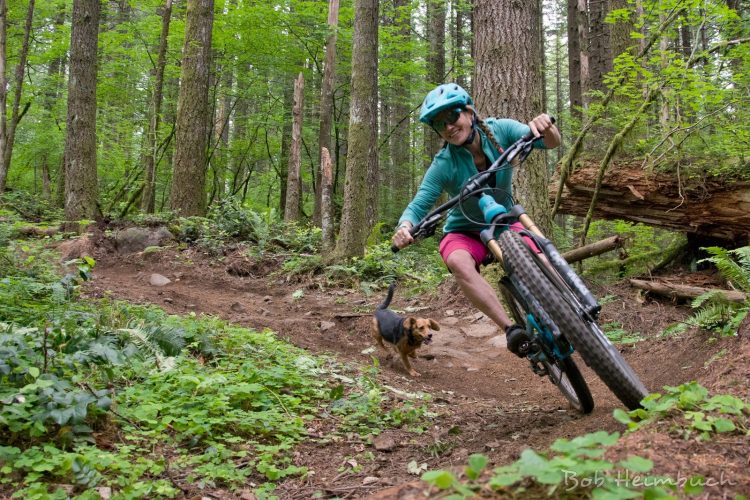
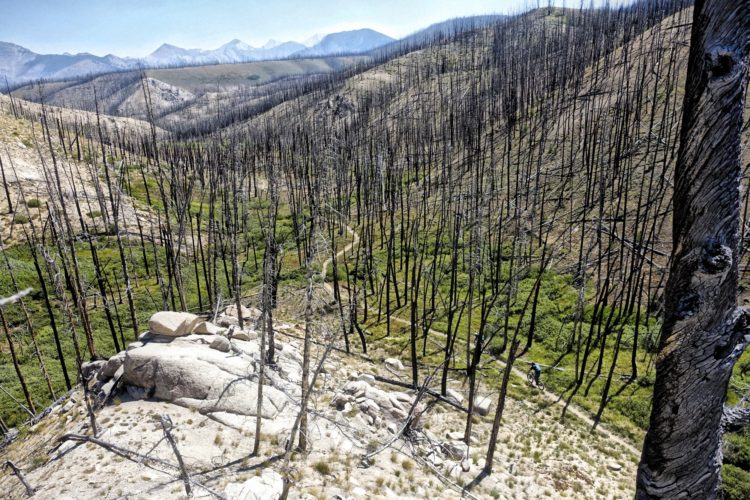
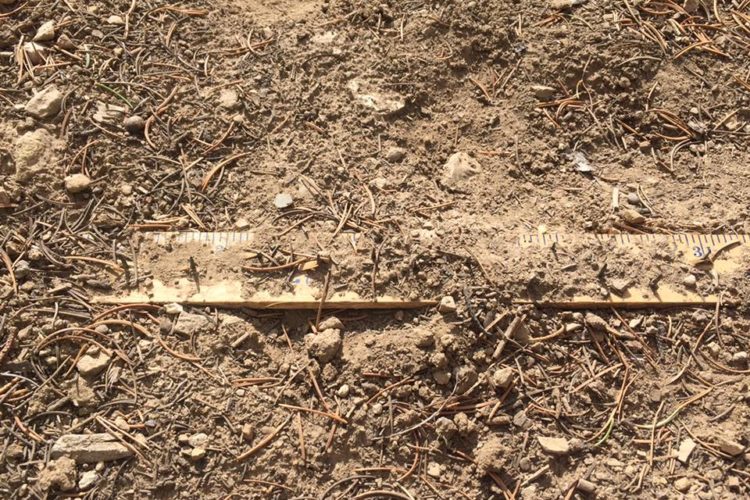



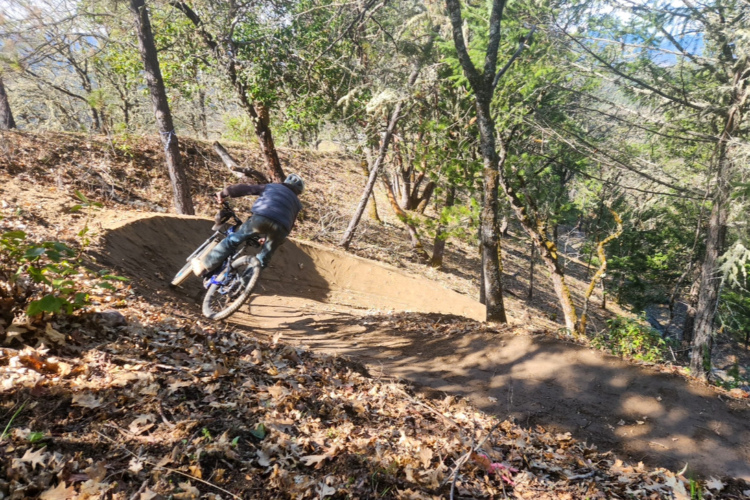
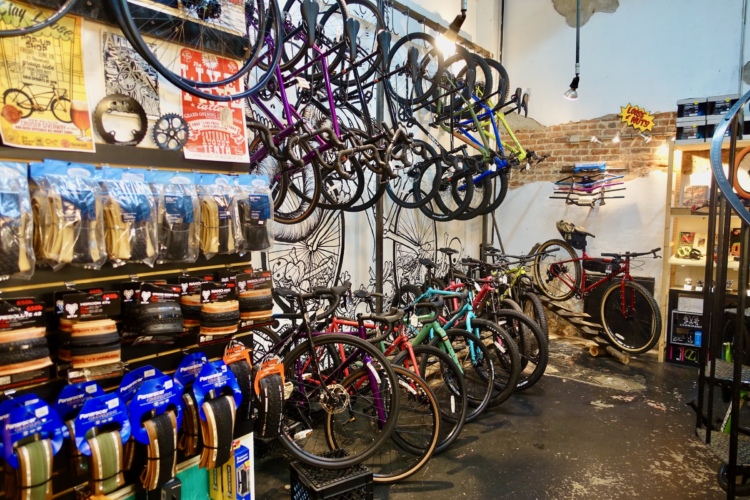

1 Comments
Jun 8, 2019